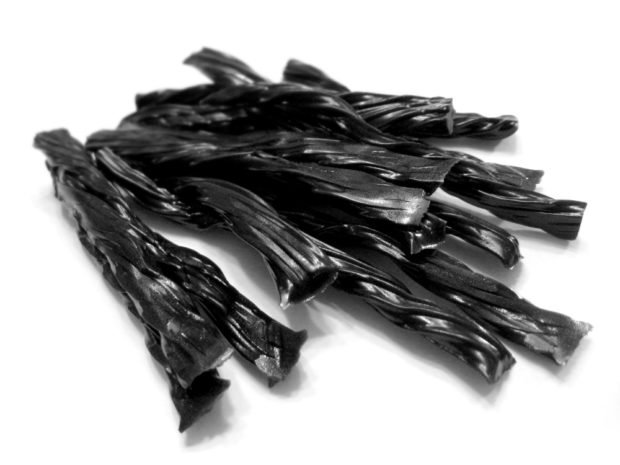FDA Warning: Black Licorice Can Cause Heart Problems
Mom always said that eating too much candy is bad, but the FDA is one-upping her with a new warning on the consumption of black licorice.
The Food and Drug Administration on Monday issued a consumer update warning those who enjoy the dark treat to do so in moderation to avoid serious heart issues.
If you’re 40 or older, eating 2 ounces of black licorice a day for at least two weeks could land you in the hospital with an irregular heart rhythm or arrhythmia.
FDA experts say black licorice contains the compound glycyrrhizin, which is the sweetening compound derived from licorice root. Glycyrrhizin can cause potassium levels in the body to fall. When that happens, some people experience abnormal heart rhythms, as well as high blood pressure, edema (swelling), lethargy, and congestive heart failure.
“Several medical journals have linked black licorice to health problems in people over 40,” the FDA said in its update. “some of whom had a history of heart disease and/or high blood pressure.”
If you have a fondness for black licorice, FDA is offering this advice:
- No matter what your age, don’t eat large amounts of black licorice at one time.
- If you have been eating a lot of black licorice and have an irregular heart rhythm or muscle weakness, stop eating it immediately and contact your healthcare provider.
- Black licorice can interact with some medications, herbs and dietary supplements. Consult a health care professional if you have questions about possible interactions with a drug or supplement you take.
Red licorice, like Twizzlers, aren’t from the licorice root. Instead, they use anise oil which has the same taste and smell but does not contain glycyrrhizin and therefore don’t carry the same health concerns, but all sugary treats should be taken in moderation.
If you feel symptoms, you should stop consuming the candy and consult your physician and the FDA.
FDA’s Linda Katz, M.D says that potassium levels are usually restored with no permanent health problems when consumption stops.





